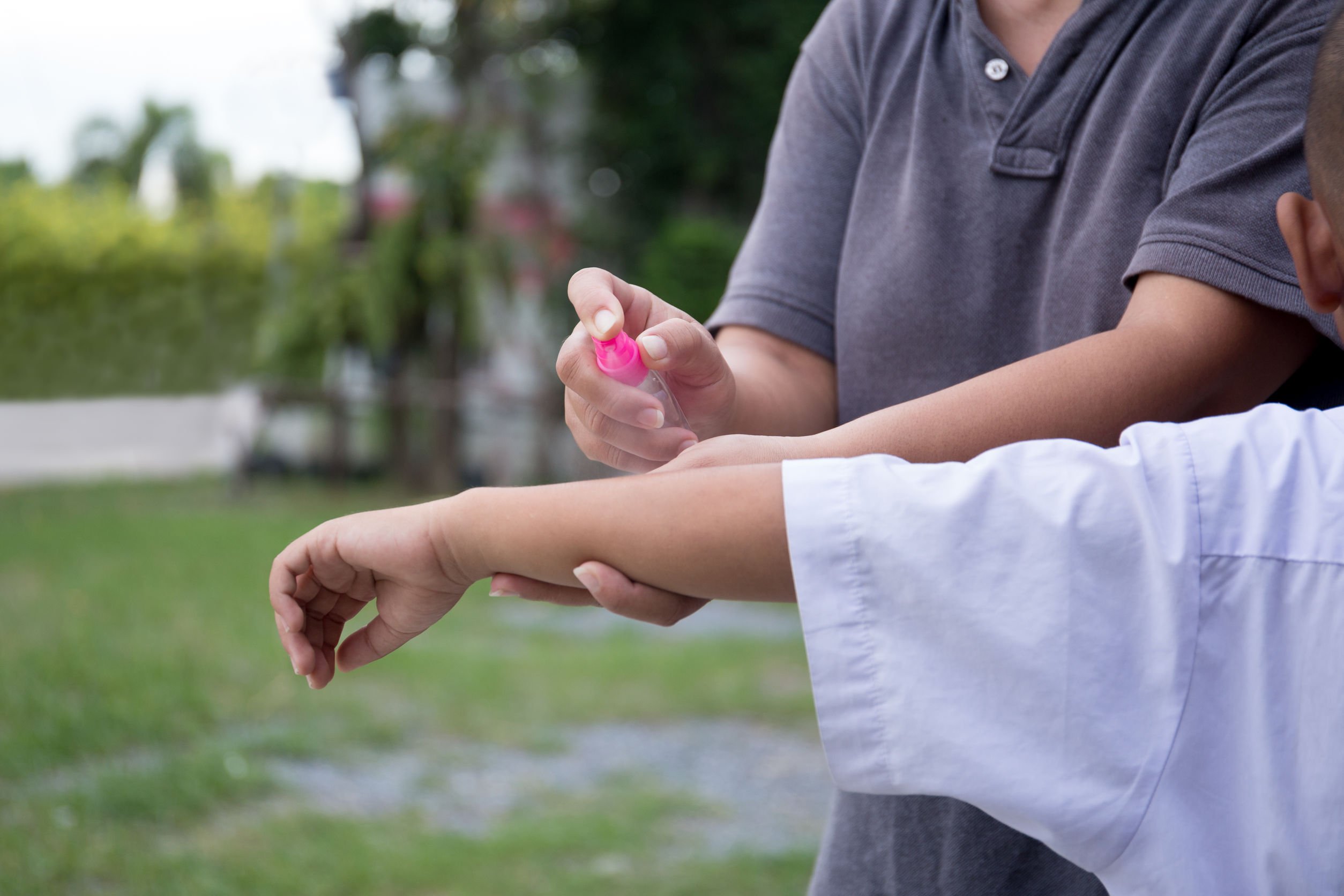In Phoenix, September still feels like the summer, and the summertime signifies the following: heat, monsoons, and bug bites. With those pesky pests assaulting your legs as you walk to your car, you can barely appreciate the weather cooling down. Because children love playing outside, they’re more susceptible to coming home covered in pink welts. Here’s how to help your kids avoid bug bites this summer.
What to Avoid
- Small pools of water
- Garbage cans
- Uncovered sweet foods
- Scented perfumes
- Scented soaps
- Scented lotions
- Being outside dusk – dawn
What to do
- Cover up from dusk – dawn
- Use mosquito netting over baby carriers and strollers
- Eliminate flowerpots
- Eliminate kiddie pools
- Eliminate birdbaths
Bug Repellent
When buying bug repellent, it’s important to look for the following:
- DEET
- Picaradin
- or Oil of Lemon Eucalyptus
Bug Repellent Myths
Not all bug repellents are alike. Here are the kinds proven not to work:
- Wristbands soaked in chemical repellents
- Garlic of Vitamin B taken by mouth
- Devices that give off sound waves
- Bug zappers
Some essential oils work as bug repellents, but only for a short while. The following may be helpful if you’ll only be exposed to bugs briefly:
- Sandalwood
- Rosemary
- Citronella
- Soybean
Dispersal devices like Allethrin work great during outdoor get-togethers in small spaces, like a barbecue or campground. They create a zone of protection that works while the machine is running.
Is My Child Allergic to Bug Bites?
Most children will develop a small, itchy, and pink to red bump on their skin after being bit. Others will develop large, itchy, red, swollen welts on their skin that last much long and often leave bruises (called Skeeter Syndrome). If you believe your child is seriously allergic to bug bites, request an appointment for a child allergy test at Pediatrix.





